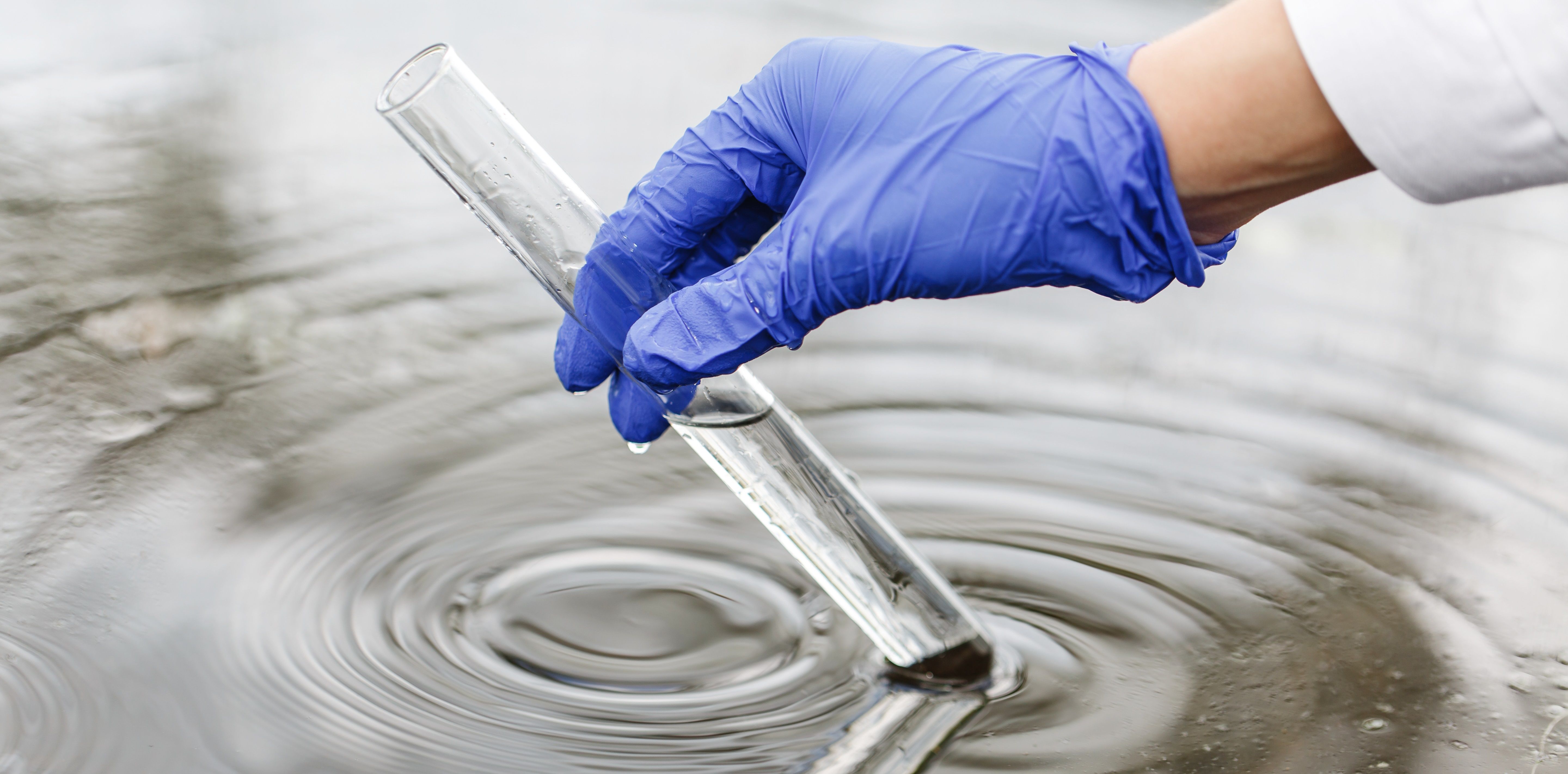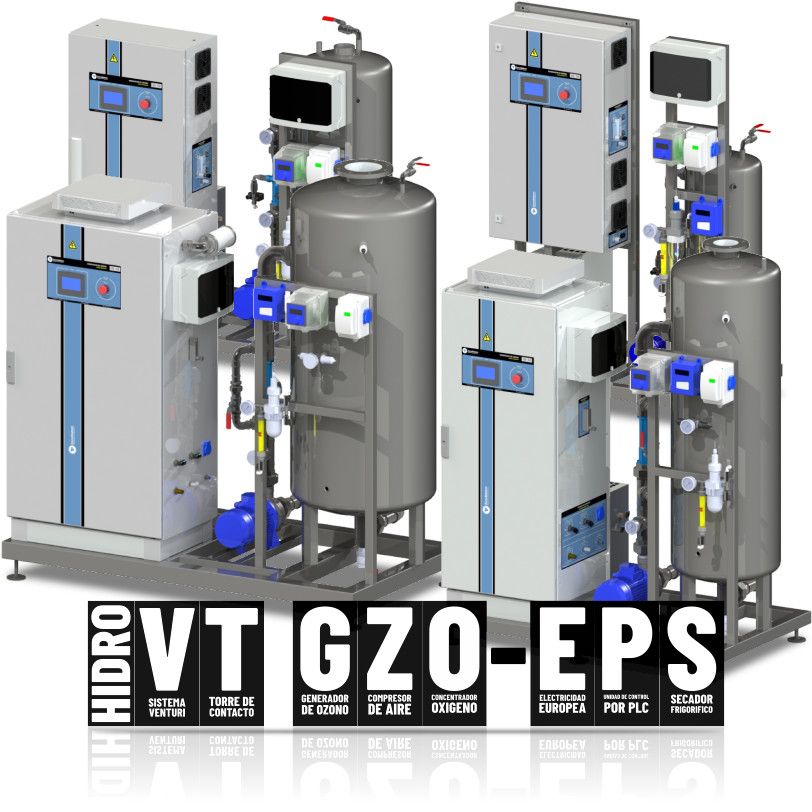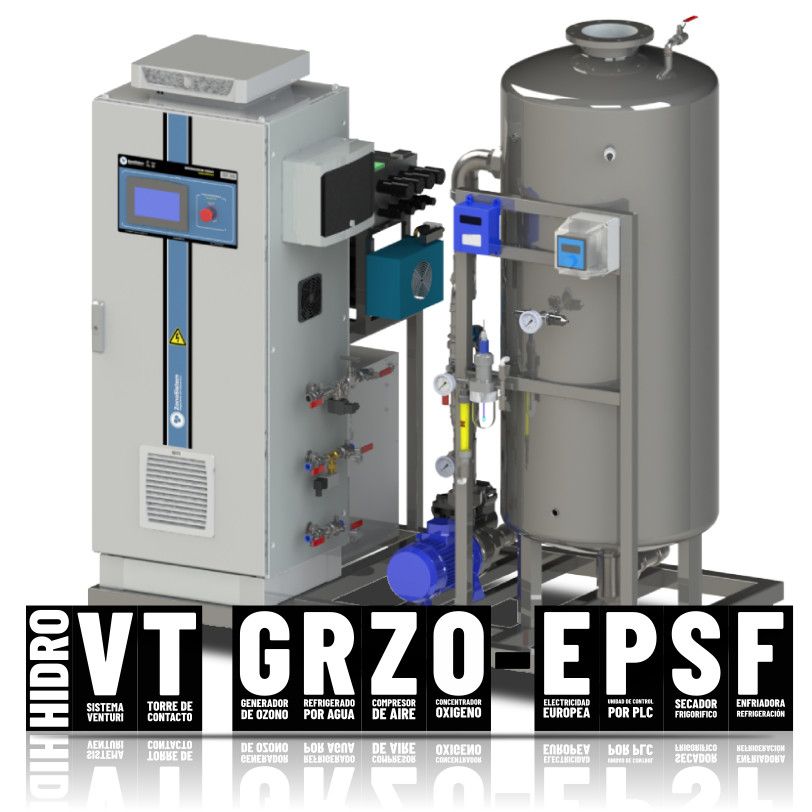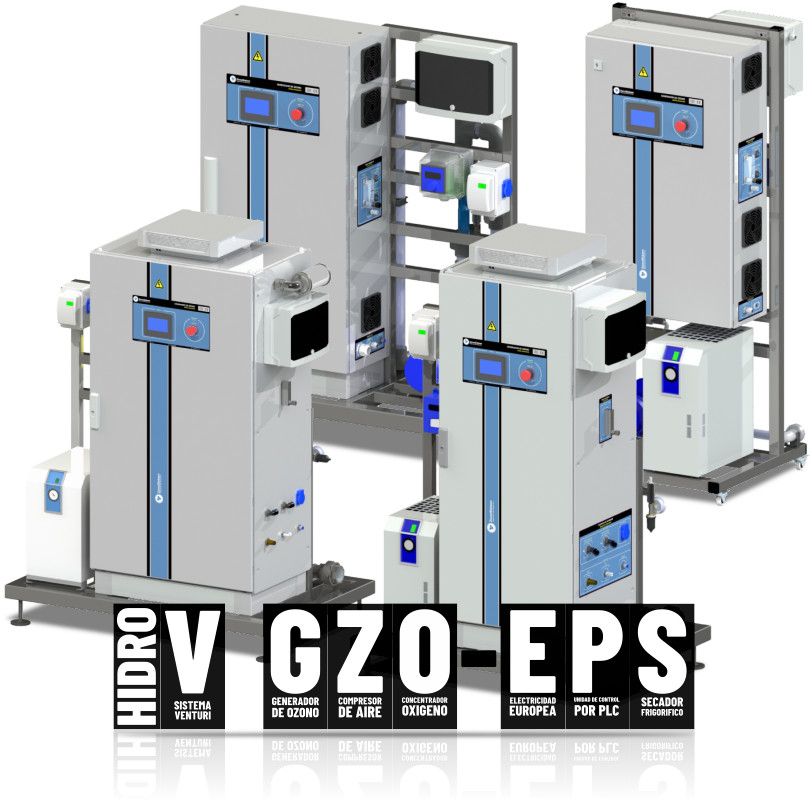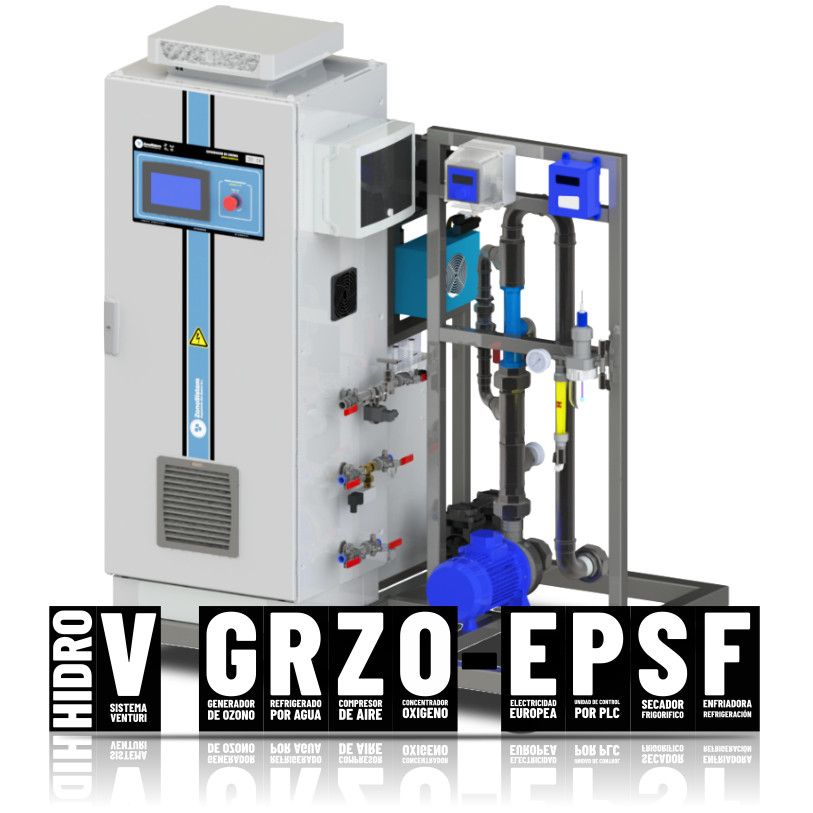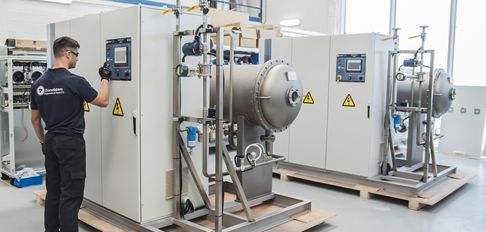Ozone in Industrial DWTP
Ozone for water pretreatment before entering the industry
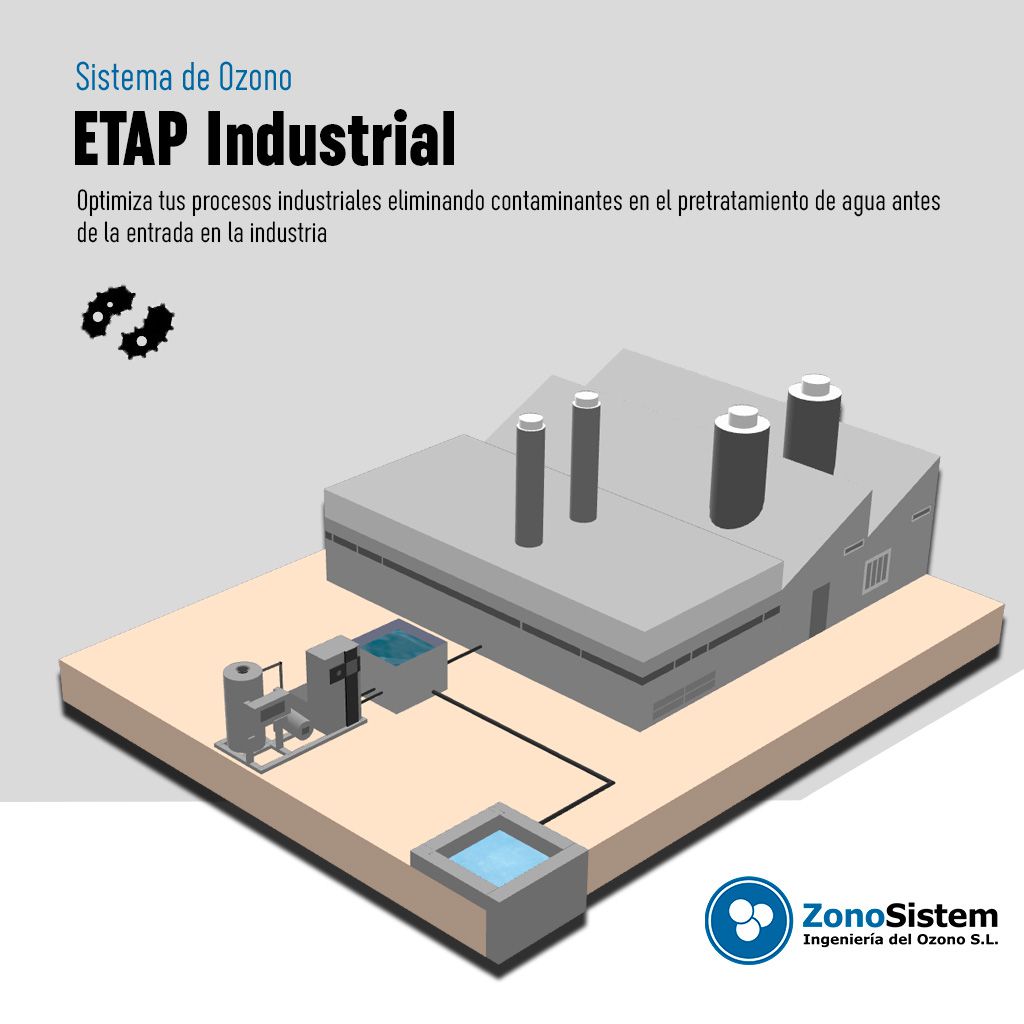
Use of ozone in Industrial DWTP
Ozone is an optimal solution for treating water from the public network or wells before its industrial use, since its oxidizing power allows the elimination or reduction of contaminants such as nitrates (from fertilizers and livestock waste), pesticides, heavy metals, excess dissolved salts or organic matter that generate turbidity, taste, or odors. In addition, it is especially effective against chlorates, by-products of chlorination, and against chlorinated or brominated anisoles, responsible for undesirable odors and tastes that may compromise the quality of final products. Unlike other disinfectants, ozone acts quickly and without leaving persistent chemical residues, ensuring purer, safer water in line with the highest industrial standards.
Optimize your industry by applying ozone and improve water quality
Ozone allows for a reduction in chemical consumption
It is generated on-site, eliminating the need to store or transport chemicals
Ozone contributes to sustainability and reduces the carbon footprint
The system is automated, so no labor is required for its application
Problems with Industrial DWTP water quality?
Effects of Ozone in an Industrial DWTP
1. Oxidizes heavy metals and emerging contaminants
Ozone oxidizes heavy metals, as well as metals such as iron and manganese, making them insoluble, favoring decantation or retention in subsequent filters. In addition, ozone effectively oxidizes emerging contaminants that come from the public network or wells.
2. Enhances flocculation and coagulation
Ozone itself has an effect of generating flocs and coagulates, due to the polarization of water when raising the Redox potential. But it also enhances the effect of other flocculants and coagulants, maximizing the grouping of organic and inorganic material. This favors subsequent filtration stages.
3. Improves filtration performance
Water treated with ozone, when reaching the filtration system, has less turbidity and less organic matter in general, so filter cleanings are reduced and consequently the consumption of washing water.
4. Powerful disinfection
Ozone eliminates, at low concentrations and short contact times, all types of microorganisms, such as viruses, bacteria, fungi, and molds. It also has a low residual effect.
5. Improves odor and taste
Chlorination in the presence of organic matter generates organochlorine by-products that, in addition to being harmful, provide unpleasant taste and odor for the consumer. Ozone is a strong solution for the agri-food industry.
6. Reduces use of chlorine, chloramines, and other by-products
Water treated with ozone is better purified and will have a lower demand for oxidants to maintain optimal disinfection levels. Therefore, if you use ozone in your Industrial WTP, you will eliminate problems with by-products. Both chlorites and chlorates are a problem, since they are regulated by health authorities due to their effects on health. The European Food Safety Authority (EFSA) sets maximum limits.
What type of Ozone Generator do I need?
Next, we show you the ranges of ozone generators available for Industrial DWTP.
1. What is the difference between the ranges?
The 4 ranges include the ozone generator, with compressor and oxygen concentrator. The first difference is that HIDRO VT ranges are used to inject ozone directly into the water pipe. To achieve this, they include a pump and venturi to inject ozone gas into the pipe and a contact tower to homogenize the mixture. HIDRO V ranges, on the other hand, are used to inject ozone into a buffer water tank through recirculation with pump and venturi.
Both ranges have automatic power control to reach the desired ozone dose.
2. Which range do you recommend?
It depends on how your hydraulic system is. If you have a buffer tank from which you supply water to different washing points, you can use a HIDRO V. If you don’t have a buffer tank, install a HIDRO VT in the main line that supplies water to all lines.
3. How much ozone do i need?
With the HIDRO VT range, you will have to apply at least 2ppm per cubic meter of water to be treated. That is, for a flow of 10m³ use at least a 20-gram generator. With the HIDRO V range, you will have to take into account, in addition to flow, the tank volume. Consult our experts.
Examples of Ozone in Industrial DWTP
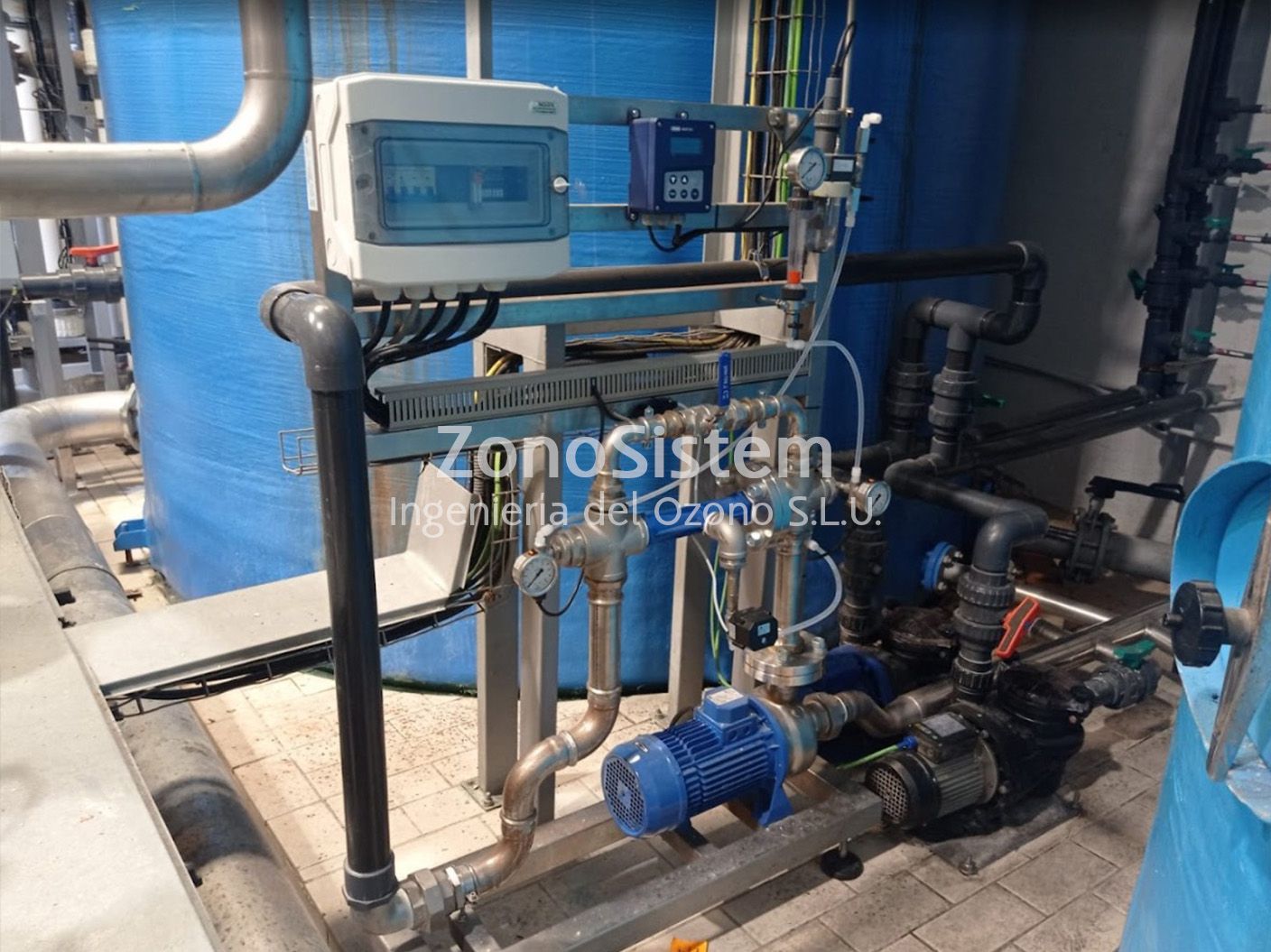
Injection and recirculation plant in reception tanks of the food industry. Spain
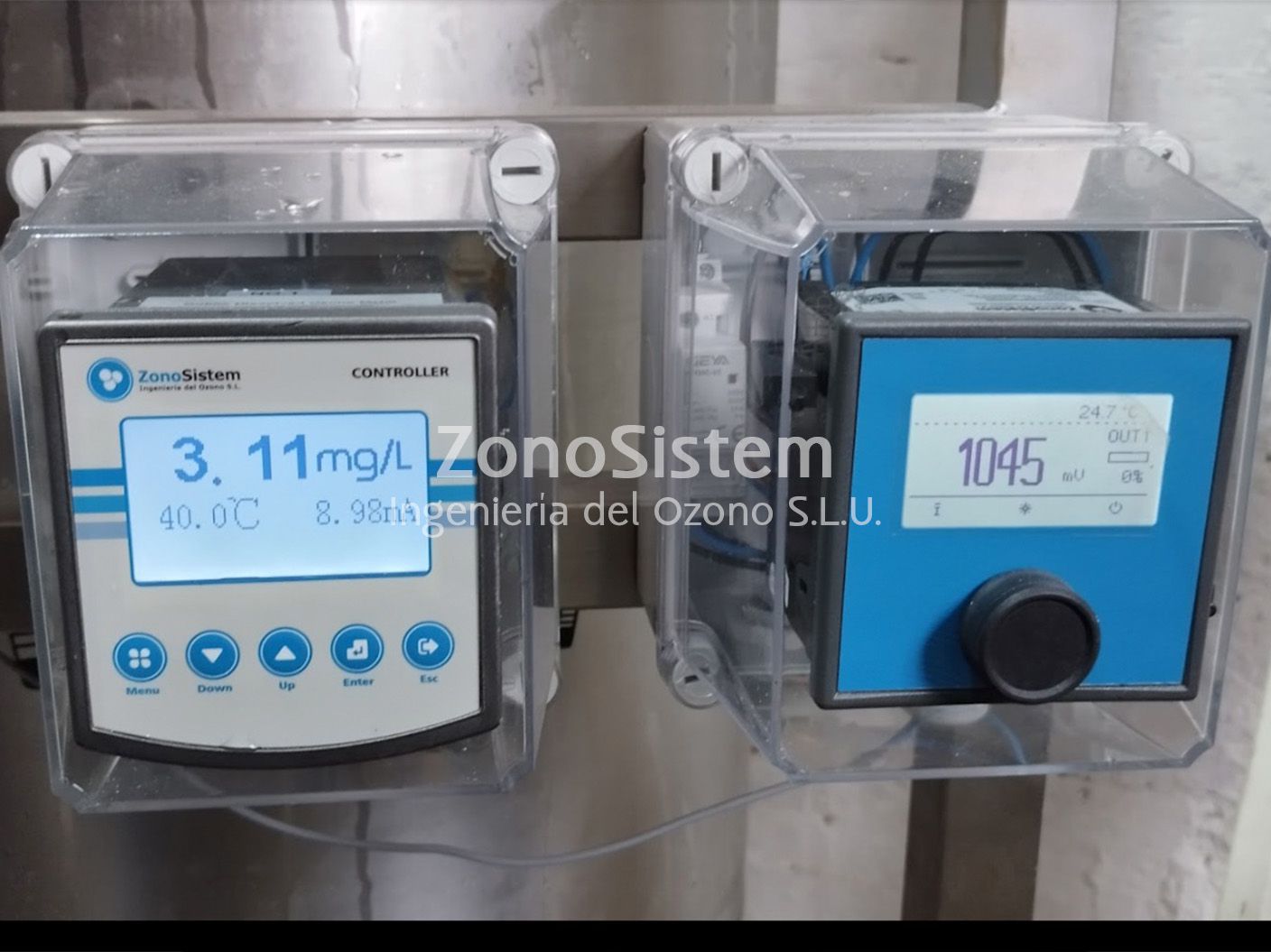
Dissolved ozone and Redox control in pretreatment of Industrial WTP. Spain
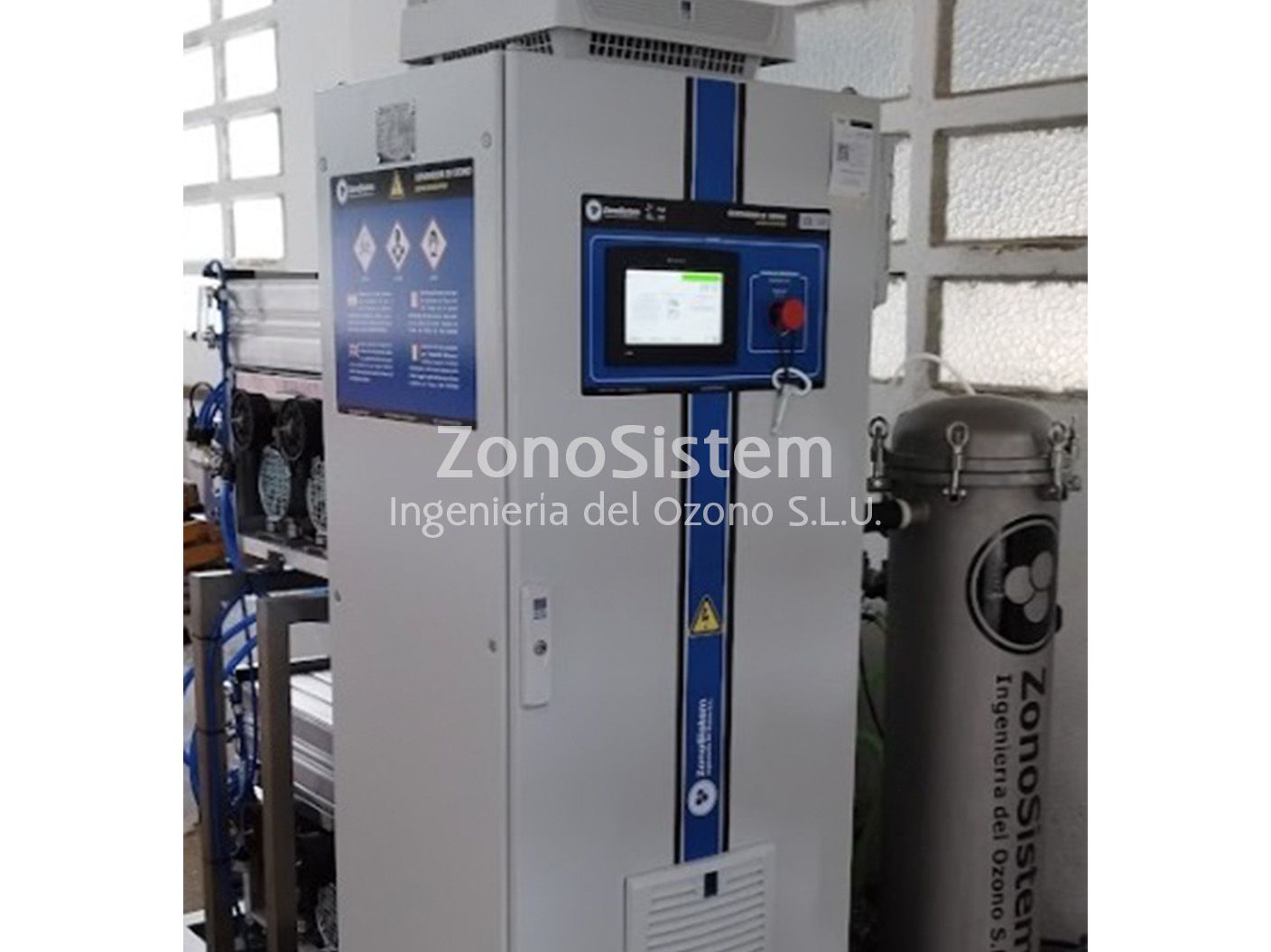
Ozone Industrial WTP Paper Industry. Spain
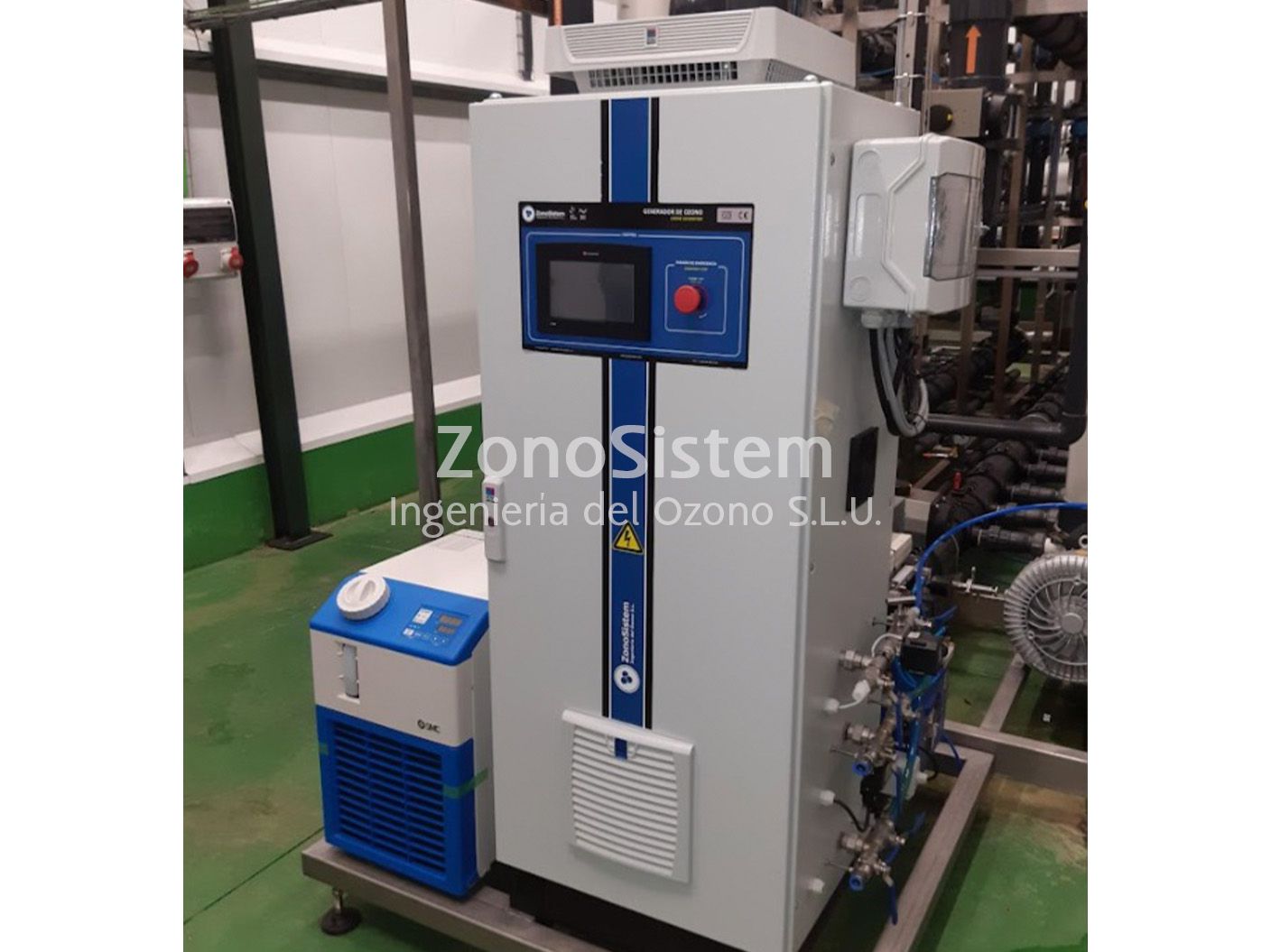
Ozone in WTP of soft drink industry. Spain
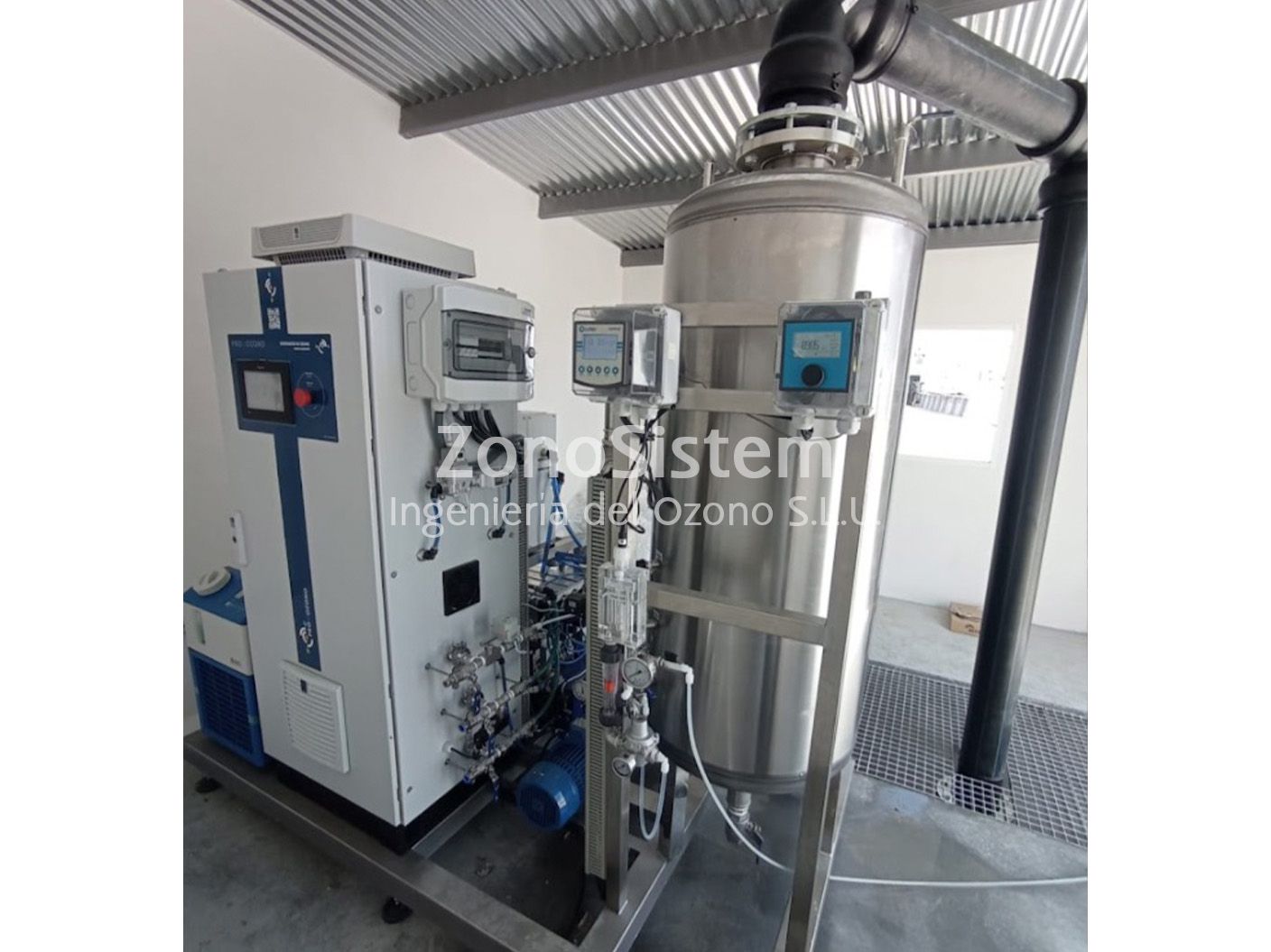
Ozone in WTP of canning industry. Spain
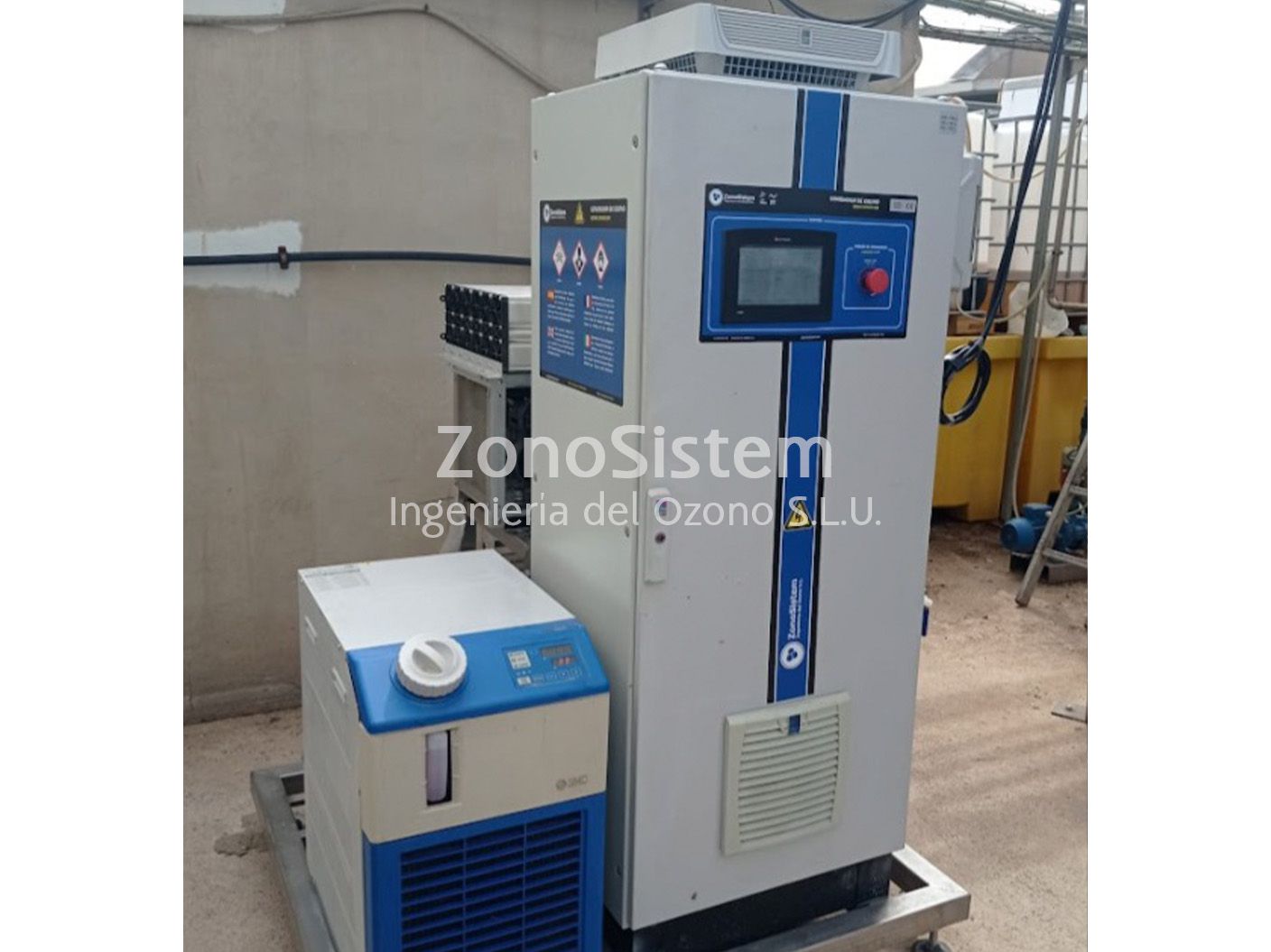
Ozone in WTP of meat industry. Spain

